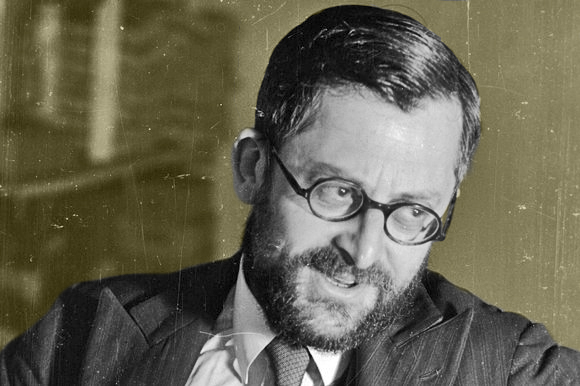
In this letter, renowned critic William Empson expounds upon the latent themes of Emily Brontë’s Wuthering Heights.
TO ARTHUR EFRON
Paunch [literary journal]
Feb. 1966
‘Wuthering Heights—II’
Dear Mr Efron,
Mr Doheny is right I think to argue ‘The book is obviously about something important, because one can feel it is good, as writing, so it can’t be about anything so dull as you say.’ But many people have found the problems of status and revenge oppressively interesting, and maybe what saves him from feeling the same is merely his happy innocence. I read the book after sending you my comments (the first time for years I suppose) and found it much more rawly and brutally about the degradation caused by the class system than I had remembered. Compared to what the book is really about, a psychological sex theory is a twittering ghost.
Americans would perhaps feel more at home with the book if they realized that it is practically the same situation as Pudd’nhead Wilson. A son of the family is to be brought up as a slave, and this cannot simply be put right afterwards, because he is really the worse for it. Heathcliff is told he will never again meet the woman he loves, though he will be living in the same house, because he will be in the servants’ quarters; this belongs to a larger and more efficiently organized house than the one in the story, but I wouldn’t call it dull. When he overhears the girl saying ‘It would degrade me to marry Heathcliff now’ he escapes and becomes ruling-class in both cash and manners within three years but at the cost of becoming a criminal type, and that does seem the only way, in the time. We don’t hear that he even invites her to leave her husband for him, but he only sees her alone once, when she is dying, after his return.
Most of the black-white miscegenation in the States happened under slavery, one is told, and I don’t mean to say a word against the act of love—I expect it sweetened the institution of slavery very much; but it did nothing to weaken the institution. The man was the ruling-class partner in the approved cases there, but the historical works of Robert Graves have made very clear that the instincts of a lady allow her to conduct a satisfactory sexual relation with the third footman without ever ceasing to treat him as the third footman. Catherine of course assumes that this is impossible; but does Mr Doheny mean that she ought to have done it?
When she says she loves him like the eternal rocks beneath he has to be somehow a local man, as Emily herself had such extravagant local feelings, though he is also from all the wild parts of the world. It seems clear what Emily would have added to the plot if she had not wanted to avoid shocking the public. Old Earnshaw sets off to Liverpool on foot because a letter has told him that his younger brother’s son, by a lady of mixed race in the Port of Liverpool, has been left destitute. He avoids scandal by not saying that this is his nephew, and leaves telling the secret till too late. This is all that is needed to explain the assumptions of the story.
Mr Doheny says I said I made my poetry confused to give the public a tease. What I was saying at the time was that poetry is insincere unless it is clinical, resolving conflicts in the author and thus preventing him from going mad; to do this it must satisfy himself as completely unconfused and indeed bare; and if the effects of doing this were trying for the reader, that was nothing to worry about—he could have the pleasure of doing a puzzle. Emily was not a patient girl, and would not have put up with the critical technique of misunderstanding nearly as quietly as I do.


